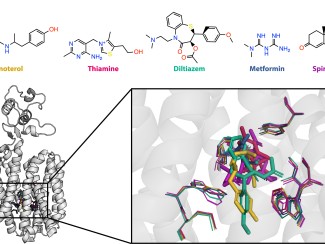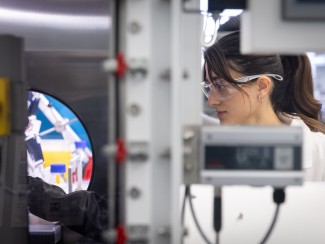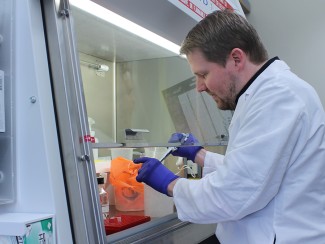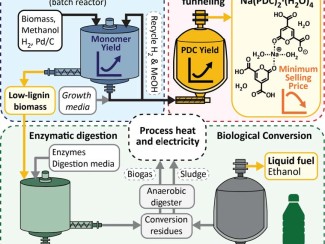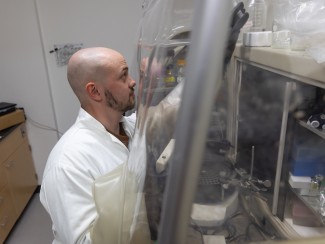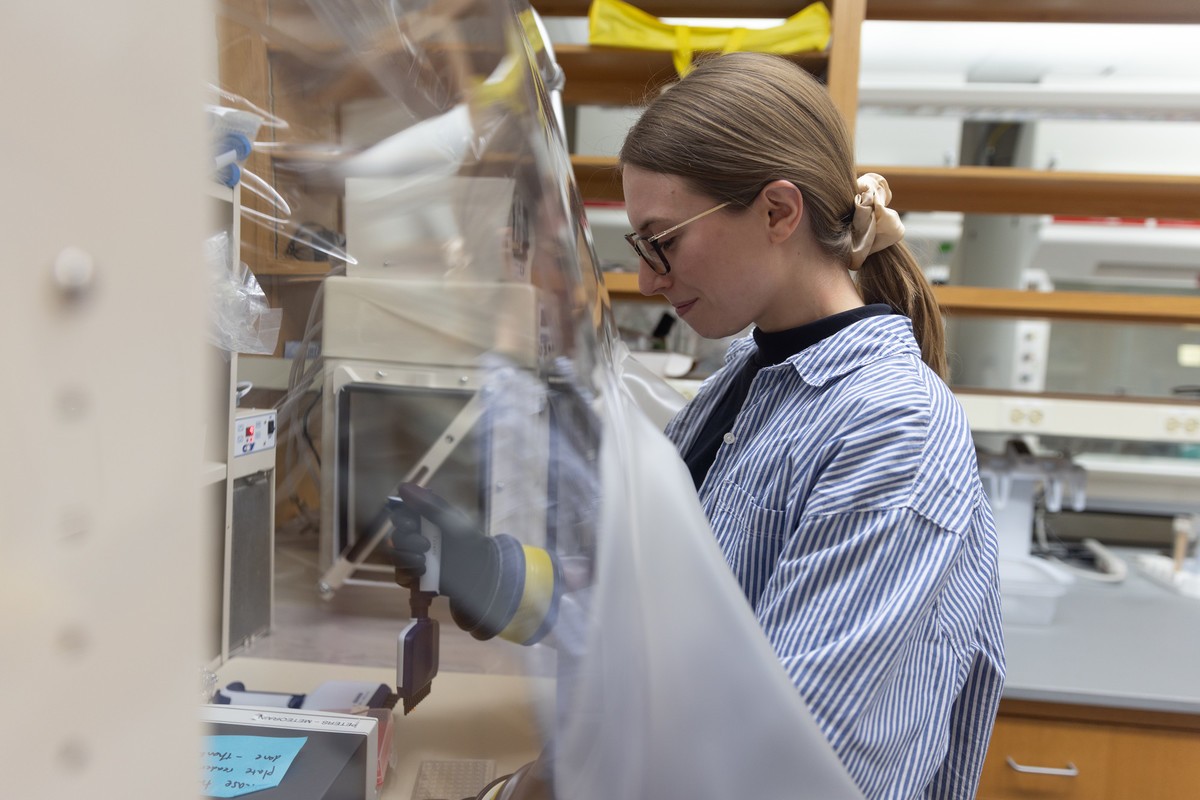
Amy Enright spends most of her work day thinking about an invisible world.
She first discovered this world of microbes in a high school biology class where she learned about DNA and genetic engineering.
“I was becoming fascinated with this whole other world that we can’t really see but has such a huge impact on us,” Enright said.
Enright, now a doctoral candidate in genetics at the University of Wisconsin–Madison, was awarded the 2024 Jennifer L. Reed Bioenergy Science Award, given annually to recognize early-career women with the Great Lakes Bioenergy Research Center for outstanding research and leadership. The award is named for Jennifer Reed, a microbial scientist and GLBRC lead who died in 2020.
“She’s shown the desire to power through tough challenges to achieve novel findings, a willingness to contribute, and a sharp intellect,” said GLBRC co-investigator Jason Peters. “Her research has had a major impact on how we understand the physiology of our biofuel production bacterium, Zymomonas mobilis.”

Enright graduated with a degree in microbiology from the University of Wisconsin–La Crosse and is now a fifth year graduate student in Peters' lab, where she focuses on Z. mobilis, a bacterium known for efficiently converting sugars into biofuels.
“I am essentially trying to make bacteria better at making biofuels,” Enright said.
One way to synthesize biofuels is by feeding broken down plant matter, or lignocellulosic hydrolysate, to a bacterium like Z. mobilis. This plant matter often contains toxins that interfere with the bacteria’s ability to convert it into biofuels.
Much of Enright’s work focuses on deducing which genes within Z. mobilis affect the bacteria’s resistance to toxins. It is in this pursuit that Enright and fellow researcher Amy Banta built upon previous technology to develop CRISPRi, a system that functions like a genetic light switch.
Using this system, researchers can “switch” genes in Z. mobilis on and off in order to determine which of those genes are relevant for the bacteria’s resistance to toxins that limit its capacity to produce biofuels.
Peters credits Enright's leadership for organizing writing efforts on a review article on CRISPRi uses that he expects will be "broadly consumed" in the field.
Zooming out, Enright’s research advances the GLBRC’s mission to advance bioenergy in a concerted effort to displace sources of energy derived from fossil fuels.
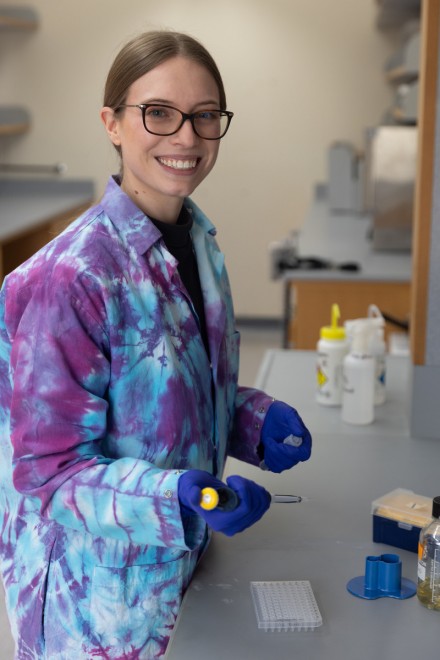
“There are so many wonderful applications for science, and it just so happens that this application is what really spoke to my heart,” Enright said. “In science, when you’re one person, you can only do so much. Being part of a larger community … that’s all working toward the same end goal is also very rewarding in that way because we can kind of see the ship moving.”
Enright traces her passion for research to a fascination with biology and the natural world more broadly.
“I remember as a kid I would go out to water the garden at home and just end up staring at a bug for 30 minutes or something,” Enright said. “We were snorkeling on a vacation once, and my family all started swimming away … I was still staring at the coral.”
This fascination inspires a commitment to research that seeks to preserve that world. And it’s a fascination that’s placed her in environments that often lack gender diversity.
Biology and microbiology are increasingly diverse, but the energy sector remains male dominated. While the research community is welcoming, Enright stressed the need for mentors who look like you.
For Enright, it's all about following her interests.
“There are so many things that you can research or so many ways that you can apply your talents,” Enright said. "And then go learn about it a little more.”

